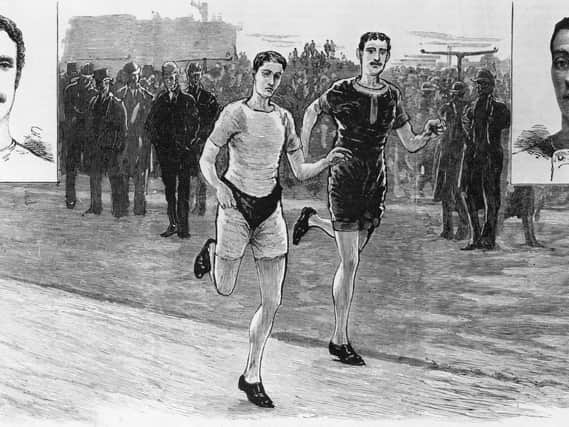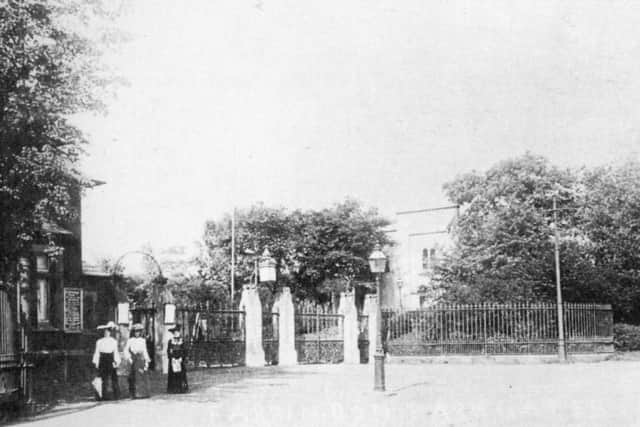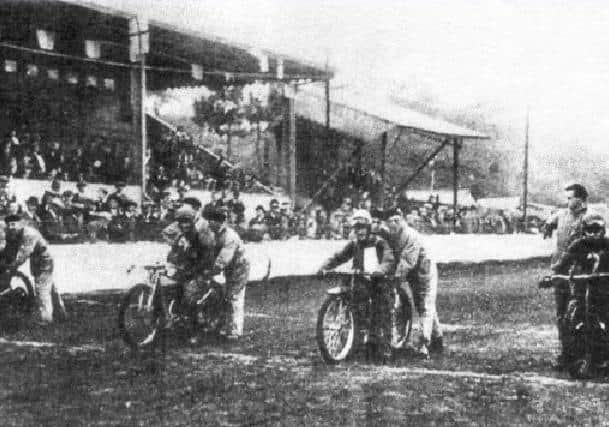When the world's fastest men raced in Preston


One place destined to create great sporting memories was the Preston Pleasure Gardens, opened at Farringdon Park in 1877, which soon became a focal point of entertainment and sporting activity for Lancashire folk.
With tennis, croquet, gymnastics, bowling, cycling racing and foot races all attracting action, it was very much an Olympic Park of its day.
Advertisement
Hide AdAdvertisement
Hide AdFoot racing, or what they called pedestrian-ism in Victorian days, became of particular interest. William Duddle, who was Bolton-born in 1858, but living in Preston was grabbing attention with his performances over one mile, which included a couple of four minute, 30 second finishes in 1879.


Meanwhile, William Jeffrey Cummings, born in Paisley in 1858, was making a name for himself in Glasgow and was invited to London in 1878 to take part in a mile race which he won in four minutes 28 seconds.
Around this time Cummings came to Preston, obtaining work as a joiner, and met Esther Turner who he would marry at St Augustine’s church in December 1881. Cummings had been persuaded to make Preston his base by his future wife’s brother-in-law Nathan Mather, landlord of the New Cock Inn who arranged his training.
In December 1880 Duddle put his growing reputation on the line when he agreed to face Robert Cummins, of Cardiff, at Preston with their backers raising a £200 stake.
Advertisement
Hide AdAdvertisement
Hide AdWatched by a crowd of more than 2,000 Duddle, urged on by his diligent trainer Tom Parker, set a cracking pace on the cinder track. Cummins was hard on his heels throughout but Duddle found that extra stride on the final straight to win by five yards in four minutes 19 seconds as the locals cheered him home.


After this event, and impressive performances by William Cummings over distances of one mile and 10 miles which earned him championship title belts, it was inevitable that Duddle and Cummings would meet again and the race at Preston fixed for mid-May 1880 was seen as an opportunity to break the mile record held.
The race held on a rainy afternoon attracted a record crowd of more than 4,000 and the backers raised a prize fund of £220.
For the first three laps the pair were neck and neck and with only 300 yards to go Cummings broke clear and Duddle, despite a couple of spurts, was trailing by eight yards as Cummings crossed the finishing line. The time recorded was four minutes 16.2 seconds, thus Cummings had beaten the record by a second.
Advertisement
Hide AdAdvertisement
Hide AdIn August 1886 Cummings travelled to London to face Walter Goodall George in a duel billed as the ‘Mile Of The Century’ watched by 25,000 spectators. In a terrific race George overtook Cummings with 70 yards to go, crossing the line in an astonishing four minutes 12.8 seconds to create a record time which would not be beaten for 30 years.
In early September 1886 the pair took part in a Four Mile race at Preston, having previously met in a four mile race a year earlier in Edinburgh when Cummings was declared ‘Champion Of The World’ as he took the £200 prize. The title and a £400 purse were on offer at the Preston clash and the meeting was the talk of the town.
There were more than 10,000 spectators present for the late afternoon start and George set the pace with Cummings content to trail behind him. Towards the end of the third mile the pace quickened and Cummings drew level urged on by the crowd.
For 300 yards they raced side-by-side at sprinting pace until Cummings drew clear by 10 yards. George was clearly struggling and had no reply as Cummings took the last lap in his stride to finish in 20 minutes 12 seconds, confirming his champion status.
Advertisement
Hide AdAdvertisement
Hide AdCummings was clearly a local favourite and on many of his appearances at the Preston cinder track he achieved record breaking times over distances from one mile to 10 miles and his battles with WG George delighted the Victorian sporting public.
When his running days were over he kept the Royal Hotel at Morecambe before returning to Preston in 1901 to become landlord of the Prime Jug Inn on Back Lane.
A year later he returned to his birthplace in Paisley returning occasionally to Preston and during the First World War worked in a munitions factory in Glasgow.
He died of cancer in July 1919 in a Glasgow hospital after a lingering illness and when news reached Preston there was much sadness as his mentor Nathan Mather spoke of the days when Cummings challenged the world and had no equal on the cinder tracks wearing his plimsolls. The Preston Pleasure Gardens was also the place where Sanders Sellers the ‘ Penny Farthing’ champion delighted the Victorian crowds with his exploits on the Preston circuit.
Advertisement
Hide AdAdvertisement
Hide AdRacing at home or abroad he was a formidable cyclist of his day who made cycling so popular in the town. The venue was equally popular from 1929 until 1932 with the Farringdon Park dirt track used by the Preston Speedway club for regular meetings. For drama and excitement it had few equals and crowds of more than 10,000 would regularly gather around the cinder track.
The participants were certainly daredevil riders and national cup success followed for the Preston team. Unfortunately, a couple of deaths on the circuit led to a decline in popularity and the club folded three years after its formation.
Celebrating Preston by Keith Johnson is available from Amberley priced £15.99. Besides the exploits of the sporting icons there are sections on Arts and Literature, Entertainment, Enterprise And Endeavours, Poetic Preston, Preston Firsts and Pomp, Pageantry and Processions.